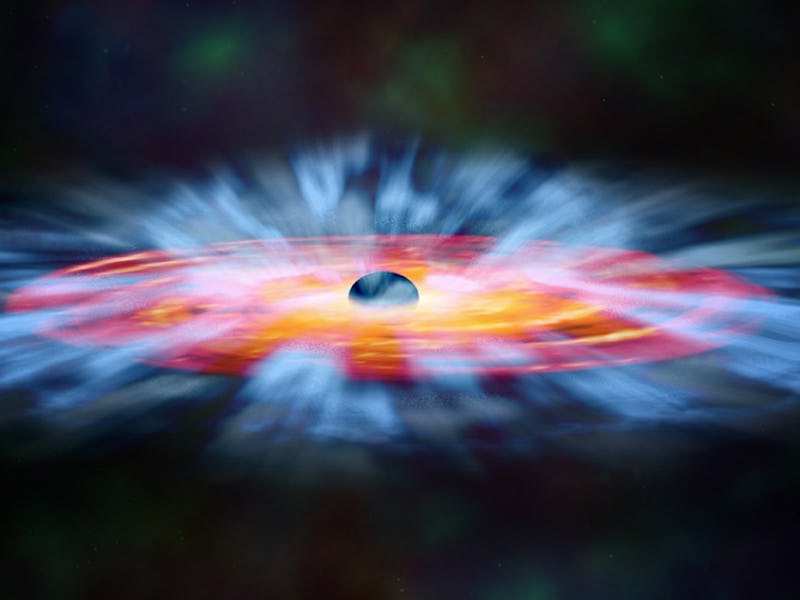Black holes aren’t exactly the easiest thing to study, but NASA is launching a new mission at the end of this decade to conduct research on supermassive black holes by observing cosmic X-rays and unlocking their mysteries.
The Imaging X-ray Polarimetry Explorer, or IXPE, will launch in 2020, and will use three specialized space telescopes to conduct its business. “Objects such as black holes can heat surrounding gases to more than a million degrees,” a NASA release explains. “The high-energy X-ray radiation from this gas can be polarized – vibrating in a particular direction.”
The telescopes, equipped with polarization sensitive X-ray detectors courtesy of the Italian Space Agency, can measure these cosmic X-rays, giving researchers new insights into black holes, neutron stars, and pulsars.
“We cannot directly image what’s going on near objects like black holes and neutron stars, but studying the polarization of X-rays emitted from their surrounding environments reveals the physics of these enigmatic objects,” explained Paul Hertz, the astrophysics division director for NASA’s Science Mission Directorate. “Today, we can only guess what we will find.”
A black hole.
The entire mission is expected to cost $188 million. IXPE is part of NASA’s Astrophysics Explorers Program, meaning it was one of 14 submissions for new projects the agency called for back in 2014. IXPE was deemed the winner due to feasibility and research potential.
